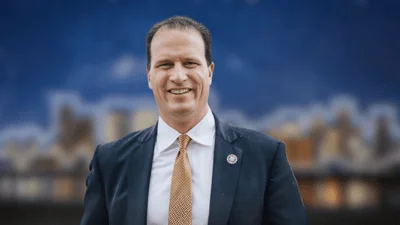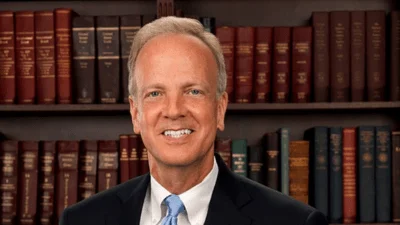From the earliest days of the pandemic, people with disabilities have paid a high price, borne a heavy burden, and endured untold losses. Our hearing today will examine how the pandemic has exacerbated longstanding barriers to health care access and health disparities faced by people with disabilities, and will highlight critical avenues for reform - especially stopping the wait-the outrageous wait for those, who, after being determined by Social Security to be disabled, must wait two long years before they can obtain the Medicare coverage for which they qualify.
Let’s remember the extreme vulnerability of this population, who can only qualify for Social Security Disability Insurance if they have a condition so debilitating that they were unable to work for at least a year. More appropriately described as “suffering periods," an estimated 1.6 million Americans are currently stuck in the Medicare waiting period and in 2018 alone, about 56,000 individuals died waiting for Medicare coverage to begin. As one constituent described to me, the system treats applicants “like they have to prove their innocence." We must end this systemic bias and Stop the Wait, as my bipartisan legislation with Rep. Fitzpatrick, Senator Casey and 75 House cosponsors would do.
In the final days of the 116th Congress, we stopped the wait for those suffering with ALS or Lou Gehrig's disease. Another pending bill proposes to stop the wait for those suffering from metastatic breast cancer. Our colleague Bill Pascrell proposes to stop the wait for Huntington's Disease. While each of these individual disease measures is worthy, I believe this Congress must do more than chip away at the problem disease by disease. All of those caught up in suffering periods deserve relief. No one with conditions severe enough to qualify for SSDI should be without health insurance. Social Security is not truly providing health care security until all individuals with qualifying for Disability Insurance have guaranteed access to Medicare coverage.
This arbitrary wait was no doubt established to contain costs, but it only shifts costs to the vulnerable. And our Stop the Wait Act has become all the more urgent as more Americans suffer from Long COVID, a condition that represents the largest new entrant to the disability community in modern history.
The pandemic has been described as a “mass-disabling event" because of the vast number of people who, after contracting COVID, are now newly disabled or chronically ill. I applaud our colleague Don Beyer’s efforts to fully fund scientific research into the effects of Long COVID. It is more urgent than ever to address the many health access challenges disabled patients face.
We will hear from Dr. Monica Verduzco-Gutierrez, a stroke and brain injury rehab physician and the head of a Long COVID clinic based at UT Health San Antonio and University Health System. Dr. Verduzco-Gutierrez will explain the range of symptoms of Long COVID, what it means to her patients, and the supports they need.
We will also be hearing from Liza Fisher, who will share her moving experience with Long COVID and the Medicare Waiting Period. Stories like hers are why I authored the Stop the Wait Act. Liza, has also been denied access to health care because of the failure of Republican state leaders to accept federal dollars to expand Medicaid eligibility.
Another important policy we examine today is the promise of telemedicine. Expanded access to telehealth, permitted by emergency waivers, has transformed health care delivery. For patients with disabilities, this has removed transportation barriers, enabled easier access to specialists, and helped individuals remain safe during the pandemic.
In explaining the importance of telehealth, Nicole and Cody wrote to me “People are afraid of the clinics, of the emergency room, even of their own doctor’s private suite. It’s downright scary for an immunocompromised patient and her caregiver to even set foot on medical premises." Telehealth has helped so many connect to their physicians safely. However, as Dr. Rupa Valdez will describe, the design of telehealth platforms, removing coverage restrictions, and access to broadband and tablets and smart phones are all essential to ensuring equitable benefit.
During a previous hearing before this Subcommittee, we discussed how best to prevent a telehealth cliff when the emergency waivers expire and the importance of building a system that promotes equity, expands access, and ensures quality of care. Today, we will continue this important conversation and consider policy proposals for expanding telehealth - such as the bipartisan Telehealth Extension Act I introduced with Reps. Thompson, Kelly, Schweikert, Buchanan, and several others on this committee. I hope that we will soon move forward with a markup on this important legislation.
The pragmatic approach we take permanently removes onerous site-based and geographic restrictions that have a disproportionate impact on patients with disabilities. We also provide a temporary two-year extension of the broad range of services permitted via telehealth under the emergency waivers-providing time for further study of quality of care and what additional policies are needed to ensure platforms do not exacerbate or create new disparities.
Health care access for disabled people was already in an untenable state before the pandemic. As one Texan told me, “I want to live independently, people with disabilities have that right. We may need accommodations, but we deserve the freedom of independent living."
Bethany Lilly will describe some of these pre-pandemic challenges, including difficulties obtaining and maintaining health insurance coverage, underinvestment in home and community-based services, challenges getting to and from appointments, inaccessible medical facilities and equipment, stigma and discrimination, and inadequate care. Pre-pandemic, 1 in 3 adults of working age with disabilities did not have a primary provider, 1 in 3 had an unmet health care need due to cost, and 1 in 4 did not even have a routine check-up in the past year.
Today’s hearing marks a long overdue conversation. So many have described to me an overwhelming feeling of isolation and marginalization-some often feel invisible. Like so many other areas, COVID-19 may have compounded such feelings, but they were not caused by the pandemic. Systemic problems in our health care system and social biases have led to millions feeling left out and forgotten. Today, we work to correct these wrongs and take a more intentional approach moving forward to ensure inclusion of all individuals and equitable accessibility in our health care system.
Thank you to our witnesses for the insights you will share today.








